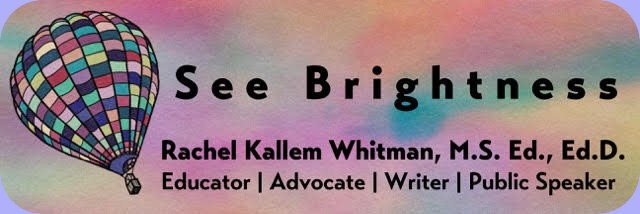Mission:
What the hell am I doing?
Disability is the largest minority group in the world and it’s a minority group in which we’ll all become members. As we lose our hearing, as our vision fades, and as we struggle with mobility, it’s inevitable that we’ll all become disabled. But despite this reality we don’t really think a lot about disability or how people with disabilities experience everyday life.
Grab your wallet and take out a one-dollar bill and a five-dollar bill. Close your eyes. Can you tell the difference between the two? If someone was blind or had low vision, could they?
Remember a time when you were going on vacation and there was an issue with your flight that was announced over the loudspeaker. If you’re Deaf or hard of hearing, how would you know that there was a gate change?
Have you ever gone out to dinner with your friends? When you picked the restaurant did you have to call ahead to make sure that their bathroom was accessible? Did you have to call multiple restaurants to finally find a place where you can eat with your pals?
If you’ve ever needed a prescription from your pharmacy how much did it cost? There are some medications that can cost $700 a month without insurance. If you don’t have insurance, how can you afford lifesaving treatments and medications?
If you are neurodivergent, blind, Deaf, need mobility aids, or live with a chronic illness is it your fault that you can’t access some aspects of everyday life? Does your disability mean that you are broken, or do we actually need to fix our inaccessible world?
What is Ableism?
We live in a society that disempowers people with disabilities via a cycle of able-bodied privilege. If someone has a disability, we often don’t value their identity, experiences, or needs because we view able-bodied or (nondisabled) people as superior. This bias found in our ideas, practices, institutions, and social relations is called ableism. Ableism outlines that if you have a disability, you are less-than.
Let’s reflect on the scenarios included above. These examples do a great job illustrating everyday aspects of ableism that people who don’t have disabilities might not even be aware of. When you don’t experience discrimination because of your privilege, it can be hard to recognize it and understand how it can be damaging.
How do we Challenge Ableism?
First and foremost, challenging ableism requires listening to people with disabilities and respecting their experiences and abilities. Whenever we make assumptions about someone based on their identity, we discount and delegitimize how they experience the world. When it comes to making the world a more inclusive place, people with disabilities need to be the ones with the microphone and able-bodied people have to be allies. So how do you become an ally?
Tips for Allyship
An ally is an individual who wants to fight for the equality of a marginalized group that they are not a member of. Here are some tips for being an ally from activist Chescaleigh:
Recognize and unpack your privilege
Do your homework: listen and learn from the community you are working with
Speak up, don’t speak over: allies amplify the needs of marginalized people, not their own agenda
Focus on your impact, not your intent: this means apologizing when you make mistakes
Acknowledge that ally is a verb, it’s about doing the work and not just saying you’re an ally
Our world was not built for people with disabilities and we need to recognize how ableism impacts their everyday lives. Ableism can be explicit: inaccessible buildings, discriminatory hiring practices (not hiring people with disabilities for jobs they are qualified for), and segregating students with disabilities into separate schools. But ableism can also be implicit, like holding prejudicial beliefs about mental illness.
So what’s my part in all this?
See Brightness: Hope, Humor, and Asking for Help
My mission through my writing, teaching, and public speaking is to educate people on what it is like living disabled in a world that was not built with you in mind and how to encourage people to push back on ableism through advocacy, allyship, and activism by having access to accurate information.
This also applies to the experience of living with a mental illness in a world where being mentally ill is often met with stigma and silence, which can be fatal.
I’ll let NAMI do the talking.
(Shout out to Oasis Mental Health Applications for their support)
